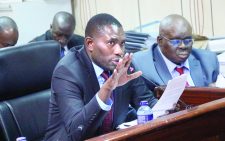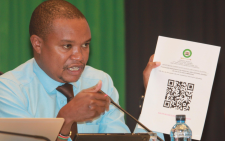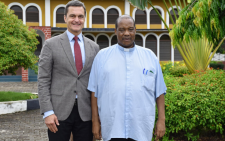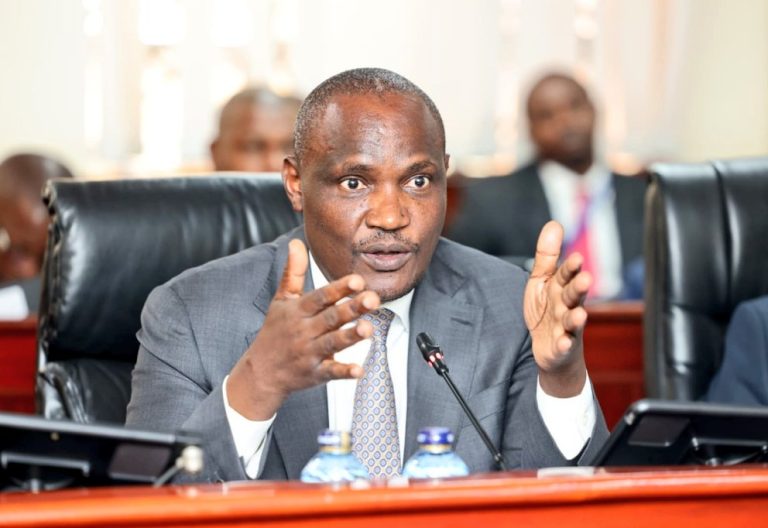Senator Onyonka: NG-CDF must be reviewed or abolished

Kisii Senator Richard Onyonka has reignited the debate surrounding the legality and sustainability of the National Government Constituency Development Fund (NG-CDF), asserting that the fund is unconstitutional and should either be overhauled or scrapped entirely.
Speaking during an interview with a local TV station on Tuesday, May 27, 2025, the outspoken senator criticized the manner in which Members of Parliament (MPs) wield influence over the fund, arguing that it not only contravenes the spirit of devolution but also violates the principle of separation of powers.
“NG-CDF undermines the constitution. It creates a parallel executive role for MPs and blurs the lines of accountability. It must be reviewed or abolished altogether,” Onyonka stated during the live session.
Misuse and politicization
The senator accused MPs of using the fund as a political tool to build loyalty among constituents, often at the expense of equitable development and transparency. He said that while the fund was initially intended to address grassroots development needs, it has since become a breeding ground for corruption and patronage.
“Today, if you walk into some constituencies, the projects undertaken through NG-CDF are poorly implemented and often serve political interests rather than public good,” Onyonka said, urging Kenyans to scrutinize how the fund has been managed over the years.
Onyonka’s remarks follow a 2024 High Court ruling that declared the amended NG-CDF Act unconstitutional. The ruling stated that the fund violates several provisions of the 2010 Constitution by allowing MPs to engage in executive functions and by overlapping with county roles.
The court directed that all NG-CDF operations cease by June 30, 2026, unless Parliament passes legislation that aligns the fund with constitutional provisions.
Despite the ruling, some legislators have vowed to safeguard the fund by pushing for its entrenchment in the Constitution through a proposed amendment bill. The Constitution of Kenya (Amendment) Bill, 2025, is currently before Parliament and, if passed, could secure the fund’s place in law despite judicial objections.
Pushback from MPs
Proponents of NG-CDF argue that the fund has been instrumental in supporting education through bursaries and in implementing community-based projects. Onyonka, however, dismissed these claims, asserting that county governments are better placed to manage such development roles under the devolved system.
“We must decide as a country whether we want MPs to legislate and provide oversight, or to run development projects. We can’t have both,” he said.
Onyonka vs Murugara
Senator Onyonka’s strong stance has drawn sharp rebuttal from Tharaka MP George Murugara, chair of the Justice and Legal Affairs Committee, who maintains that NG-CDF remains one of the most effective tools for direct constituency development.
“We have to entrench these funds, especially the NG-CDF, in the constitution because the courts have expressed themselves in a manner which we have never agreed with,” Murugara said, adding that lawmakers are determined to protect the fund’s future through legal reform.
He criticised what he termed as “selective constitutional interpretation” and maintained that MPs are best placed to understand and address the needs of their constituents at the grassroots level.
“This fund is the only hope for some communities. If the issue is constitutionality, then we will fix that in Parliament. Let’s not throw away a working system because of a legal technicality,” he said.
Murugara’s sentiment reflects the prevailing mood in the National Assembly, where many legislators have publicly backed efforts to anchor NG-CDF in the Constitution through a popular amendment drive.
Public opinion
The debate over NG-CDF has elicited mixed reactions from the public. While some citizens appreciate the tangible benefits brought about by the fund—especially in education and infrastructure—others echo Onyonka’s concerns about its misuse, duplication of county functions, and constitutional validity.
As the legislative process unfolds, the nation watches closely to see whether Parliament will prioritize constitutional adherence or maintain the status quo of constituency-based development funding. Either outcome could have far-reaching implications on how public funds are managed and who gets to manage them.








